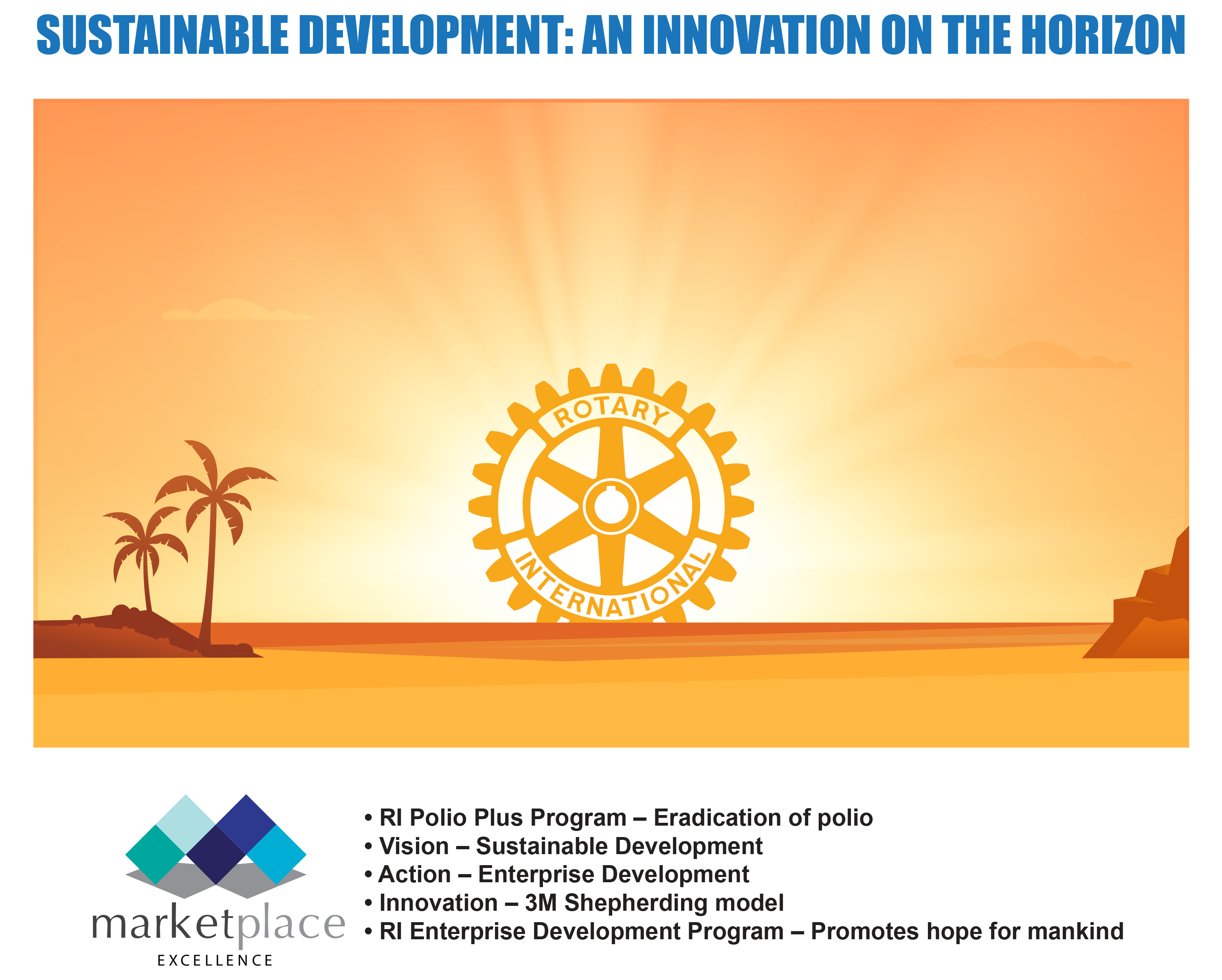“Instruct those who are rich in this present world not to be conceited or to fix their hope on the uncertainty of riches, but on God, who richly supplies us with all things to enjoy.” – 1 Timothy 6:17
As I pondered over this scripture in the Book of Timothy, it struck me how relevant it is to the challenges we face in the realm of sustainable development. In today’s world, where the pursuit of wealth often overshadows the greater good, it’s crucial for us to shift our focus towards a more sustainable and equitable future.
Rotary International (RI), a venerable institution at 118 years old, has shown us what can be achieved when individuals and organizations choose to direct their resources towards a noble cause. Rotary’s involvement in the Global Polio Eradication Initiative is a testament to the power of collective action. Since its inception in 1979, this initiative has managed to reduce polio cases by a staggering 99.9 percent, protecting nearly 3 billion children across 122 countries.
The RI theme for this year, “Create Hope in the World”, resonates deeply with the essence of sustainable development. With 1.4 million Rotarians in 34,000 clubs worldwide, backed by the energy of Rotaractors and Interactors, Rotary represents a formidable force committed to making the world a better place.
In the Rotary calendar, October is dedicated to Economic Development and Community Development, while April is Environment month. These are the building blocks of Sustainable Development, a holistic approach that offers hope for a brighter future.
Economic Development is about fostering job creation and wealth generation. Community Development focuses on improving the quality of life in our communities. The Environment, our life-support system, underpins both our economy and society. Sustainable Development is the path we must tread, ensuring that we meet the needs of today without jeopardizing the prospects of future generations.
One crucial element in the journey toward sustainable development is enterprise development. It’s about nurturing businesses that not only thrive but also contribute positively to society and the environment. Yet, globally, the enterprise development sector faces a daunting challenge – the high failure rate among young entrepreneurs.
Over the past 25 years, I have been privileged to work with various teams across the Caribbean, all dedicated to mitigating this failure rate. Our challenges are threefold: selecting enterprises that can genuinely bolster the economy, addressing the high failure rate, and ensuring access to timely and appropriate finance.
The 3M Shepherding model offers a promising solution. First, it advocates for the selection of visionary enterprises, emphasizing rigorous due diligence not only on the business but also on the entrepreneur and the promoter. Second, it recognizes the importance of nurturing life skills and effective business systems – Shepherding – to support sustainable growth. And, it introduces an innovative equity growth fund, incentivizing private capital mobilization through government incentives.
This model is relevant not only for independent entrepreneurs but also for intrapreneurs, those employees within organizations who can innovate and drive new visions. Just as Rotary International envisioned the eradication of polio and executed a comprehensive plan to protect children worldwide, we have the opportunity to replicate this process in the realm of sustainable development.
Let us collectively envision a future where sustainable development is not just a concept but a reality. On the local level, we can start by harnessing the resources within our clubs then expand our efforts across nations in our Rotary District, and then across Rotary boundaries in the world. Together, we can create hope in the world, just as Rotary has done in its mission to protect children from polio.
As we heed the wisdom from the word of the Lord, let us not fixate on the uncertainty of riches but on the certainty of creating a better world through sustainable development. The legacy we leave for future generations depends on our commitment to this noble cause. In other words, let us be sure not just to be readers, but doers of the word.

(Dr. Basil Springer GCM is a Change-Engine Consultant. His email address is basilgf@marketplaceexcellence.com. His columns may be found at www.nothingbeatsbusiness.com).
